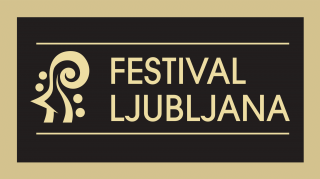No Borders Orchestra originates from the wish to create the highest class professional regional symphonic orchestra, a project which calls for a new kind of communication. There are two basic premises the NBO is founded on.
The social aspect of the project is achieved by the deconstruction of stereotypes, overcoming of nationalism, racism, xenophobia, homophobia, bloody legacy of the past, in other words, through affirmation of cultural values that are in a complete disarray in local transitional societies. Being fully aware of the past, NBO is not a Yugo-nostalgic project. On the contrary, it is completely committed to the future. Nostalgia abolishes criticism, and critical engagement is the core of our idea. The right to the future requires the courage to face all the traumatic facts from the past. An honest dialogue on the difficult issues of responsibility dispels demons from the past and opens the door for the possibilities yet to come.
From the artistic side, we tend to create a symphonic orchestra where all members would have motivation, engagement and energy of a chamber orchestra, which will breathe like a big chamber ensemble. NBO is an ensemble of soloists. We are asking questions and with our performances we offer some answers: Why a symphony orchestra in the 21st century? Why classical music at all? How can music become relevant again? How can music become a way of life again? What can be done with the ritual of a classical concert, which hasn’t changed since the 19th century? How can classical music stop being a museum exhibit? How can we change interaction between audiences and musicians? Why doesn’t the alternative scene of classical music exist? What does it mean: to listen? What do we base on our expectations and valuations while listening? How can we open up for something different? How can we play and listen and be free?
Because of all those questions and possible answers we are offering, NBO is open for new performers, new audiences, new concert venues, new visions and new aspects of communication. NBO is a space where fresh opportunities grow…
Our main interest is the connection between music and life! The fundamental word in our idiom is communication. Communication means awareness that collectively we can do more than individually. NBO is a call for regional cooperation and communication adressed to artists and intellectuals of different profiles: philosophers, sociologists, musicians, visual artists, writers, architects, directors, choreographers, performers…
Inspiration for NBO lies in marvelous experiences of the West-East Divan Orchestra (WEDO), founded by conductor Daniel Barenboim and Palestine intellectual Edward Said, where Israeli and Palestinian musicians play side by side. Musicians who had the opportunity to work in this orchestra have experienced the change both as artists as well as personalities. That is what we aspire for us as well! It’s not about elimination of mutual differences or any kind of imposed harmonization – it is about development of the experience that differences don’t have to represent a synonym of conflict, but rather differences among people are actually richness. While creating WEDO, they knew that one orchestra couldn’t bring peace to a tortured Near East, but at the same time they felt that it is essential to make some action, to meet The Other, to understand his thoughts and feelings, without the need to reach necessarily an agreement.
Politics shouldn’t be exclusive property of a political class, just as music is not supposed to belong exclusively to elites, old or new ones. NBO wishes to avoid the trap of artistic excellence as an excuse for marginalized self-sufficiency – a voluntary exclusion from society and time. In a way, artistic music shares the fate of discriminated social groups which are too often offered a paradoxical choice: stay trapped in your own four walls in order to be accepted by the sciety. In such circumstances, it only makes sense to step out, be loud, be visible…
A Border is just another word for prejudice. NBO is a call to play across and beyond the borders of the Alleged and usual, a call to listen without prejudices.
Does NBO wish to change the world? It might certainly happen if at least one young musician from the “suburb” can comprehend that he was not born with the right talent in the wrong place and in the wrong time. Is there something utopian in this entire attitude? Maybe, but is it necessarily a mistake? Why would dystopia always represent a credible concept?
No Borders Orchestra is a decision that art should be that change we wish to see in the world.
No Borders Orchestra is a symphony orchestra that gathers excellent professional musicians from ex- Yugoslavia region. The first performance took place at the Gala opening of the Belgrade Music Festival (BEMUS) in October 2012. This inauguration concert brought the City of Belgrade Prize for the Best Music Performance to the conductor Premil Petrović. In March 2013 the ensemble performed in Novi Sad and Belgrade in the framework of the European Festival Association Collective and Affiliate Members Meeting and at the final concert of the 14th edition of the Guitar Art Festival. The project has received significant support from the European Festival Association (EFA), Štefan Füle, EU Commissioner for Enlargement, Androulla Vassiliou, EU Commissioner for Culture, Doris Pack, President of the European Parliament’s Culture and Education Commission, UNESCO, Berlin Philharmonics… as well as from major cultural institutions and festivals in the region – BEMUS (Belgrade), NOMUS (Novi sad), Ohrid Summer, Sarajevo Winter, Remusica and Kamerfest (Prishtina), Music Biennale Zagreb, A Tempo (Podgorica), Montenegrin Music Center, KotorArt Festival, Ljubljana Festival. Following the summer tour in August 2013 which is cofinanced by the Culture Programme of the European Union, No Borders Orchestra will record the first CD for Universal Music Austria and Deutsche Gramophon. In October 2013 NBO is to perform at the opening concerts of BEMUS and Culturescapes Festival in Basel, and a special programme is devised for the first ensemble’s appearance in Pristina.


